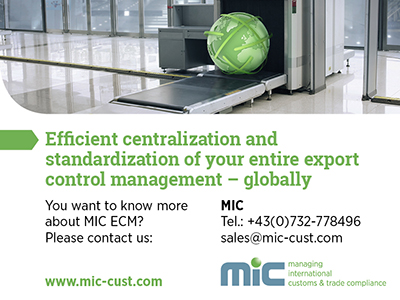Remote validation of AEO Programme applicants: the experience of Guatemala
25 October 2021
By the Guatemalan Customs AdministrationLike many of its counterparts, the Guatemalan Customs Administration has faced many challenges in recent months due to COVID-19. One of these is the validation of applicants for the Authorized Economic Operator (AEO) Programme, and the supervision of existing AEOs, while minimizing travel and physical contact to reduce the spread of COVID-19.
Previously, AEO validation and supervision were handled mainly through on-site visits at the AEO’s premises. This changed on 1 September 2020, with the publication of a resolution issued by the Superintendent of the Tax Administration Office, which allowed such operations to be carried out by combining a physical and virtual method. Re-validation of existing AEOs was already done virtually by requesting AEOs to conduct an annual self-evaluation and by analysing the reports generated during the exercise.
Adopting a hybrid approach when evaluating the compliance of a company is actually recommended in the WCO AEO Implementation and Validation Guidance. As for the re-validation process, the Guidance states that a virtual methodology “should only be considered for those AEO companies that have in the past undergone a physical or on-site validation”.
Training
To conduct the verification, the staff of the AEO Unit were trained in face-to-face and remote audit techniques by representatives of the Business Alliance for Secure Commerce (BASC). BASC is a private sector-led organization established to promote the security of international trade. It has developed security standards with which it certifies the compliance of companies’ supply chain security systems. Companies certified by BASC can apply to receive AEO certification for free, while AEOs can obtain BASC certification easily.
The staff of the AEO Unit also received support from the Association of Secure Companies, a private body specialized in international logistics security, which shared with the team its methodologies for carrying out remote validations.
Lessons learned
The Guatemalan Customs AEO Unit carried out several validation exercises of applicants for the AEO Programme during the pandemic, combining a physical and virtual validation method. In 2020, 23 companies were certified as AEOs using this methodology.
It was necessary as part of this undertaking to list separately the requirements for which compliance could be checked through administrative controls, and those for which compliance could be checked only through an on-site visit. The list was customized for each company being audited, and some actually found adequate solutions for carrying out remotely the activities usually done on-site. For example, some companies organized real-time video transmissions to enable auditors to assess the security of their facilities remotely.
The Unit shared its experience in conducting partly virtual validation with countries of the region interested in adopting the same approach.
One identified challenge is to ensure access to appropriate technology and to high-speed internet networks which are fairly stable. The live transmissions require equipment such as a video camera, phone and wireless microphone. Participants must be able to communicate with each other without interruption.
It is also essential to understand the amount of work and resources which a remote validation process requires. Companies must submit digitally all the evidence that they comply with AEO requirements. If they do not have a management system that issues digital documents and records, they will have to convert the records of their procedures and documents into PDF or a digital format which can be shown on a computer screen and shared online with the verification team during meetings.
Preparation is also key. Customs must establish good communication with the company to be certified and advise it of the technical requirements involved in performing remote validation.
Regional Recognition Arrangement
Before the COVID-19 outbreak, some Customs administrations in the region[1] were busy working on the establishment of an AEO Regional Recognition Arrangement (RRA) with the Global Alliance for Trade Facilitation. Under such a scheme, AEO status awarded in one country is recognized by all the signatory countries of the RRA, thus enabling the AEO company to benefit from favourable treatment when trading in each country involved.
During the RRA negotiation phase, each AEO Unit of the countries involved must organize joint validation exercises with their counterparts to compare their validation and re-validation procedures and practices. Guatemala Customs did not want to stop the negotiation process but deemed it necessary to adopt remote methods of working when possible, to comply with the sanitary measures and restrictions imposed by its government. It therefore proposed to its counterparts that a hybrid approach be used here too, with only those verifications which could not be done remotely taking place physically at applicants’ facilities.
The first remote joint validation exercise was carried out in July 2021. Brazil and Chile agreed to use a fully remote validation process, while Paraguay and the Dominican Republic opted for an on-site visit.
The COVID-19 pandemic has enabled Guatemala Customs and other administrations in the region to reconsider the way they conduct AEO validations. Many processes and practices will continue once the pandemic subsides.
More information
https://portal.sat.gob.gt/portal
[1] Argentina, Bolivia, Brazil, Chile, Colombia, Costa Rica, the Dominican Republic, Guatemala, Paraguay, Peru and Uruguay.

